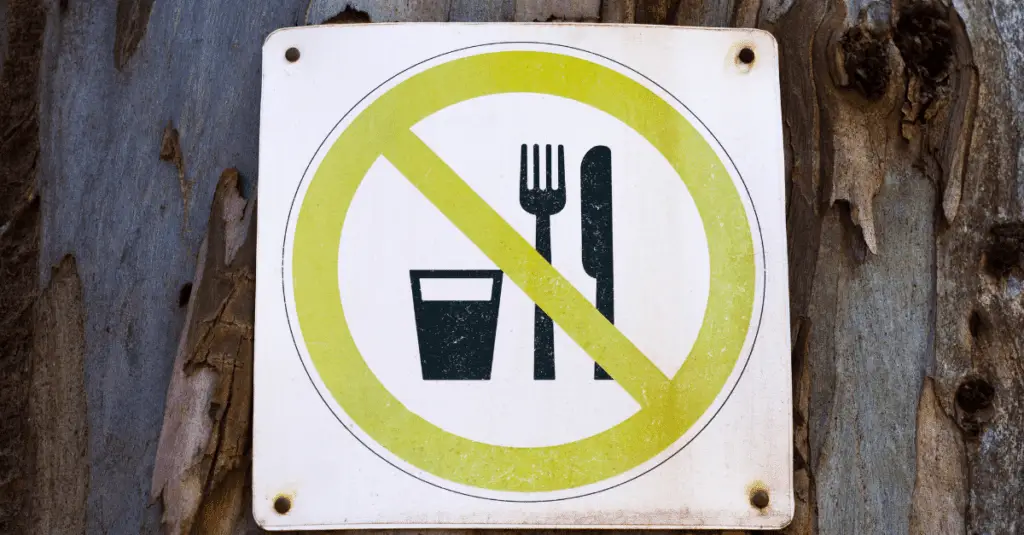
8 Surprising Reason's Why You Have Hit an Intermittent Fasting Plateau
This post is all about reasons why you have hit an intermittent fasting plateau and how to solve them.
So you have found success with intermittent fasting- whether it be for weight loss, an energy boost, clearer skin, improved gut health or just overall well-being– one minute you are making great progress and feeling unstoppable, then the next, you hit an intermittent fasting plateau…. what gives?
While intermittent fasting can be extremely beneficial for multiple areas of your overall physical and mental health, it is important to ensure you are doing it correctly. There is such a thing as fasting the WRONG way.
There are many lifestyle factors, habits and routines that you may subconsciously be incorporating into your daily life that are contributing to a plateau.
Here are the top 8 reasons why you have hit an intermittent fasting plateau and how to kick start yourself back into gear.
1.) You are fasting too much
If your fasting window is too long and/or too frequent, your body may not be getting the calories, vitamins and minerals you need for it to burn fat effectively.
This can lead to a slower metabolism in attempt to conserve energy (a.k.a hold onto the fat for fuel), headaches, fatigue, weakness, dizziness, muscle loss and much slower progress to your end health goals.
It can also sabotage your eating window as you may feel the need to binge when it is time to eat.
Solutions:
1.) Create your own personalized balanced fasting and diet plan
Creating your own plan that meets your personalized needs is important with fasting. Unfortunately with fasting, not one size fits all. Find a routine where you can get the benefits of fasting while still receiving adequate amounts of nutrient rich foods in your diet during your eating windows.
2.) Make sure you aren’t skimping on the calories
3.) Always supplement with electrolytes
2.) You are fasting too little

Everyone is different when it comes to fasting and you may be someone who requires a longer fasting window to achieve the benefits you want.
Fasting windows can range anywhere from 12-72 hours with the intermittent fasting routine of 16:8 (an eating window of 8 hours and a fasting window for 16 hours) being the most popular. However, some individuals find that even a fasting length of 16 hours does not get them where they need to be.
Solutions:
1.) Fast for longer
If you are only fasting for 12-16 hours, try extending your fasts. You may be starting your eating window right as the best benefits of fasting are kicking in!
2.) Close your eating window sooner
If your eating window falls later into your day, opt to close your eating window at least 1-2 hours before bed time. Eating when tired has been shown to lead to overeating. It also hinders your body’s ability to switch over to fat-burning mode during the night while you are asleep.
3.) Switch up your routine
If you have been on one fasting schedule for a period of time, it is possible that your body has become accustomed to it. You may find that changing your routine up a bit is all you need to get you over your intermittent fasting plateau.
4.) Try an extended fast
If you are an intermittent faster that has stalled on progress, adding an occasional extended fast of 48 -72 hours into your routine may kick start your metabolism. Just be sure to do research and educate yourself before jumping in.
3.) You aren’t taking your hormones into consideration

Women are highly sensitive to fasting during the last week of their menstrual cycle when progesterone is at its highest. Fasting during this time can spike cortisol levels and severely hinder weight loss.
Solution:
Track your cycles
Track your menstrual cycles and educate yourself on the health benefits of holding off on fasting and focusing on nutrient rich foods during your luteal phase.
Read HERE on about the importance of fasting in conjunction with your menstrual cycle.
4.) You aren’t getting enough sleep

Interrupted or poor quality sleep can lead to a dysregulation of the body’s circadian rhythm and hormones as well as a much slower metabolism.
Solutions:
1.) Give yourself a bed time
Setting and sticking to a reasonable bed time that you can incorporate into your routine and actually follow is a must. It may also be helpful to have a set wake time every morning to get your day going at a reasonable hour.
2.) Change up your routine
Limit screen time or wear blue light glasses before bed, make the air cooler, stay active throughout the day and practice stress management.
3.) Don’t eat right before bed
Not only does eating 1-2 hours before bed generally lead to overeating and possibly slow metabolism, but it can also cause indigestion and disturbed sleeping patterns.
5.) You aren’t staying active/not active enough
Exercise is one of the most important thing you can do for your overall health.
Although that may be common knowledge, what many may not know is that as you lose weight, your metabolic rate (or the rate at which you lose weight) starts to slow down.

Light to moderate intensity daily exercise can significantly increase metabolism, burn even more body fat and boost energy levels.
Solutions:
1.) Make it fun
2.) Invest in an activity tracker
3.) Start strength training
4.) Try exercising during your fasting window
It has been shown that exercising during a fasted state can have greater fat burning effects. This study concluded that exercising in a fasted state “decreases body weight, free fat mass and fat mass”.
It is recommended to do fasted exercises during light to moderate intensity workouts such as walking, jogging, cycling and yoga. Fasted high intensity workouts should be avoided as it has been shown there is a possibility of muscle breakdown.
6.) You aren’t eating the right diet
Not only will these unhealthy foods stall your results and delay body fat burning, but you will also feel weak, tired and moody due to the lack of essential vitamins and minerals.
This is especially true when you are eating a high carbohydrate diet. When eating this type of diet, your body’s first line of fuel will be those carbs instead of your own body fat.
On top of that, those simple sugars will give you a rapid spike in energy that also comes with a nasty energy crash.
Solutions:
1.) Track your macros
Decrease your carbohydrate intake and increase healthy fats, fiber and protein into your diet. By decreasing carbohydrates, you are depleting glycogen stores and can more readily tap into your own body’s fat stores. Eating the correct macro ratio will not only generate more body fat burning, but will also keep you satisfied for longer.
2.) Eat more vegetables
Aim to eat a variety of different colored vegetables at every meal. This will give you an array of different vitamins and nutrients as well as fiber to keep you feeling full for longer.
7.) You are too stressed
 When you are stressed, your body releases cortisol. When cortisol is released, your body produces excess glucose which then is converted into fat.
When you are stressed, your body releases cortisol. When cortisol is released, your body produces excess glucose which then is converted into fat.
Elevated cortisol levels not only lead to excess glucose production but also increased appetite, cravings insulin resistance, diabetes and metabolic syndrome.
Solutions:
1.) Practice stress management
Don’t forget about self care. If you are in a stressful time in your life, spend extra time focusing on activities that will help you think more positively.
Exercise, meditation, deep breathing, yoga and even extra time with loved ones may be helpful.
8.) You are drinking too much alcohol
Although drinking alcohol isn’t technically eating to break a fast, those drinks can pose even more setbacks than majority of the items on this list.

Those issues include: dehydration, poor sleep, impaired liver function, impaired insulin sensitivity, blood sugar irregularities, cravings, decreased autophagy, poor metabolism, decreased muscle gains and even rebound anxiety after drinking — all of which will hinder fasting results.
By drinking alcohol (of any kind), your body’s main priority isn’t burning carbs, proteins or even your body fat for fuel anymore—it is now focused now on filtering out those toxins.
Drinking alcohol during your fasting window means that you are actually in an eating window. You cannot be fasting and drinking alcohol at the same time.
DID YOU KNOW: It can take up to 36 hours for your body to fully process alcohol out of your system before beginning to burn fat again.
Solution:
1.) Skip the booze
Opt for a fancy mocktail or sparkling water instead of beer, wine or liquor. Your future self will thank you later!
2.) Drink in moderation
If you are going to drink, give yourself a limit beforehand and stick to it. Remember– every ounce of alcohol you drink will need to be processed out by your body before switching back to fat burning mode. Don’t forget your electrolytes!



